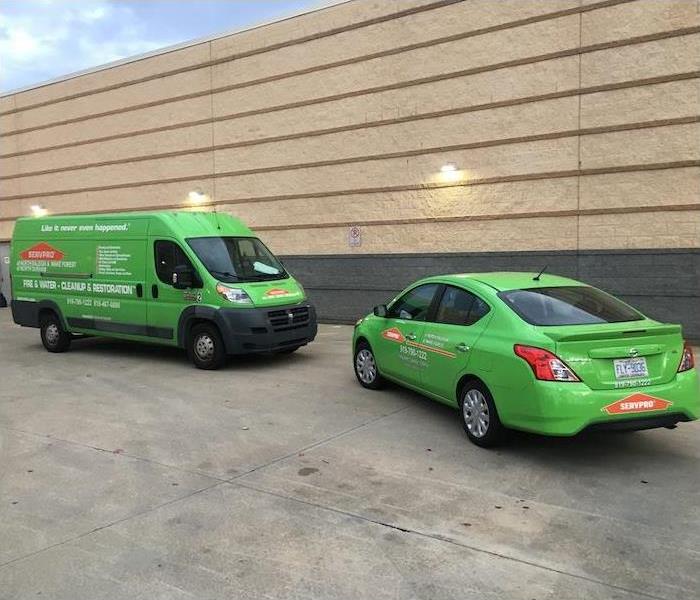What Are the Tools Needed for Raleigh House Fire Damage Mitigation?
3/27/2023 (Permalink)
From fire mitigation to soot removal, specific tools are essential to restoring Raleigh homes after a disaster.
Even with our expertise and extensive training to make us among the most knowledgeable fire restoration professionals in Wake County, we could not perform the needed fire and smoke damage cleaning without the appropriate tools and equipment from our inventory. With so many facets of smoke remediation and fire restoration, the list of needed tools is extensive.
Hand Tools and Small Powered Units
Smaller tools can directly impact emergency services and fire mitigation practices early in a Raleigh home. Situations like debris removal can have far-reaching impacts on the total fire damage restoration process. Non-powered hand tools can aid us in scooping and removing debris, soot, and ash. Other hand tools might help with other aspects of cleanup or controlled demolition, such as:
- Drywall saws
- Oscillating tools
- Shovels
- Wet/dry vacuums
Indoor Air Quality Tools
Indoor air quality (IAQ) is one of the main concerns of a fire damage restoration team working in a residence. Our SERVPRO professionals must be mindful of airborne contaminants and carcinogenic particles created during the partial combustion of several materials in the house. IAQ concerns create a volatile environment that slows the progress of other aspects of fire restoration. Hydroxyl generators are a common choice to resolve these threats, as the onboard HEPA filter traps particulates, and the unit also reduces the severity and presence of smoke malodors.
Soot Cleaning Equipment
One of the most challenging aspects of contending with soot and smoke soils during fire damage restoration is the varying compositions of the residue in question. Wet smoke damage, for example, create a thick and formidable soil deposit that dry solvents cannot clean. Several tools and products are needed to overcome soot deposits on surfaces to prevent the marring of the underlying substrate. These can include:
- Media/Dry Ice Blasting Equipment – Abrasive cleaning is sometimes needed when soot soils are formidable or penetrate porous materials. Blasting equipment puts media with high-pressure water or air to dislodge and remove set-in soot damage.
- Vacuums – Dry vacuums are a powerful tool to help pull loose soils and debris from a surface, leaving only the affixed soot damage on the surface for management with wet cleaning strategies.
- Dry Chemical Sponge – When thinner and more manageable soot residues exist, we can use rubber sponges that pull soot away from the surface. As the sponge becomes incapable of handling more soot soils, the rubber crumbles off for continued cleaning with a new surface.
Malodor Removal
Harsh and offensive odors are common traits in post-fire environments. The combustion of plastics and fuels can create overwhelming smells to accompany smoke and soot particles. These smells are among the final restoration aspects to address. They are partially removed by the time for deodorization with counteractant products and surface cleaning to remove soot and smoke residues in affected areas. When complete odor neutralization is needed, our tools to help in this endeavor include:
- ULV foggers
- Air filtration tools
- Hydroxyl machines
- Ozone
Having the right products and equipment makes a considerable difference in the efficiency and efficacy of fire damage restoration. Our SERVPRO of North Raleigh & Wake Forest team works to mitigate loss quickly using modern equipment and approaches that provide the shortest path to preloss conditions. When you call our team we can make it "Like it never even happened." (919) 790-1222.

 24/7 Emergency Service
24/7 Emergency Service
